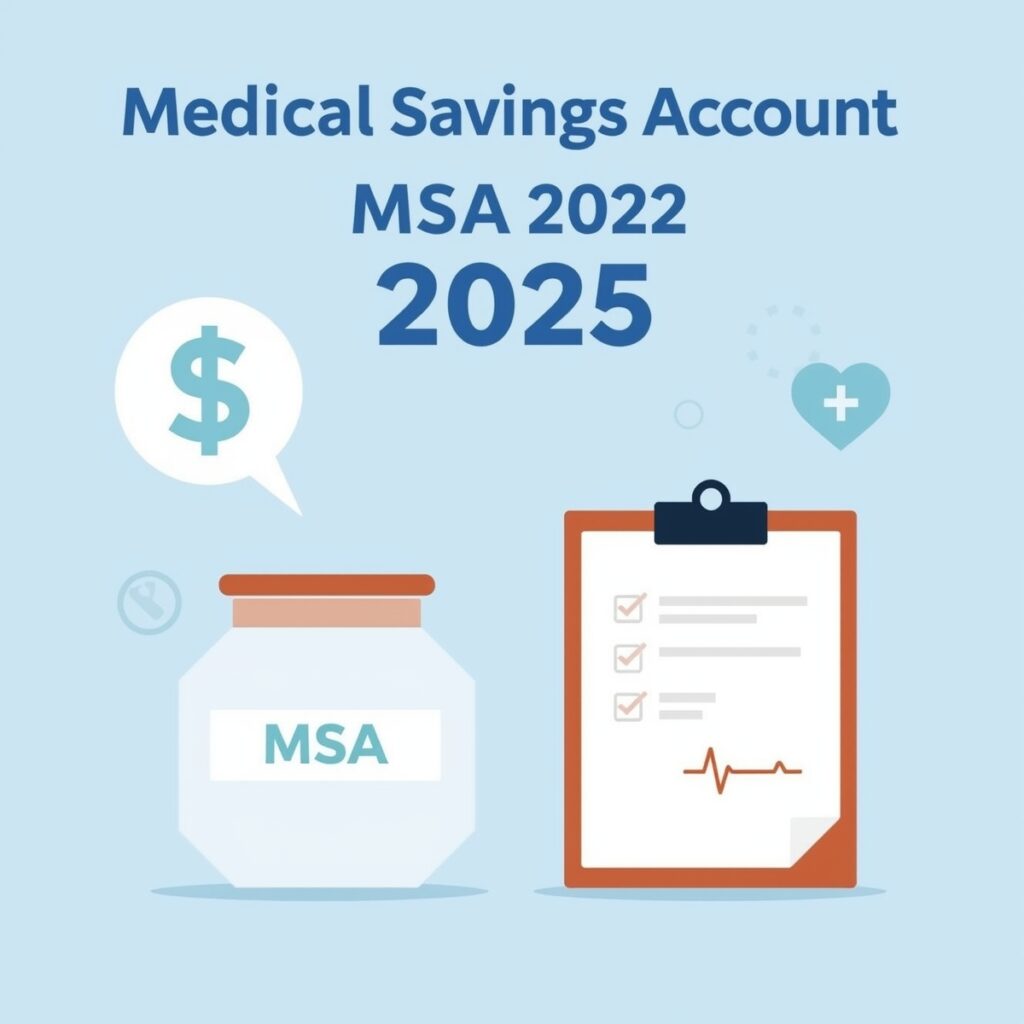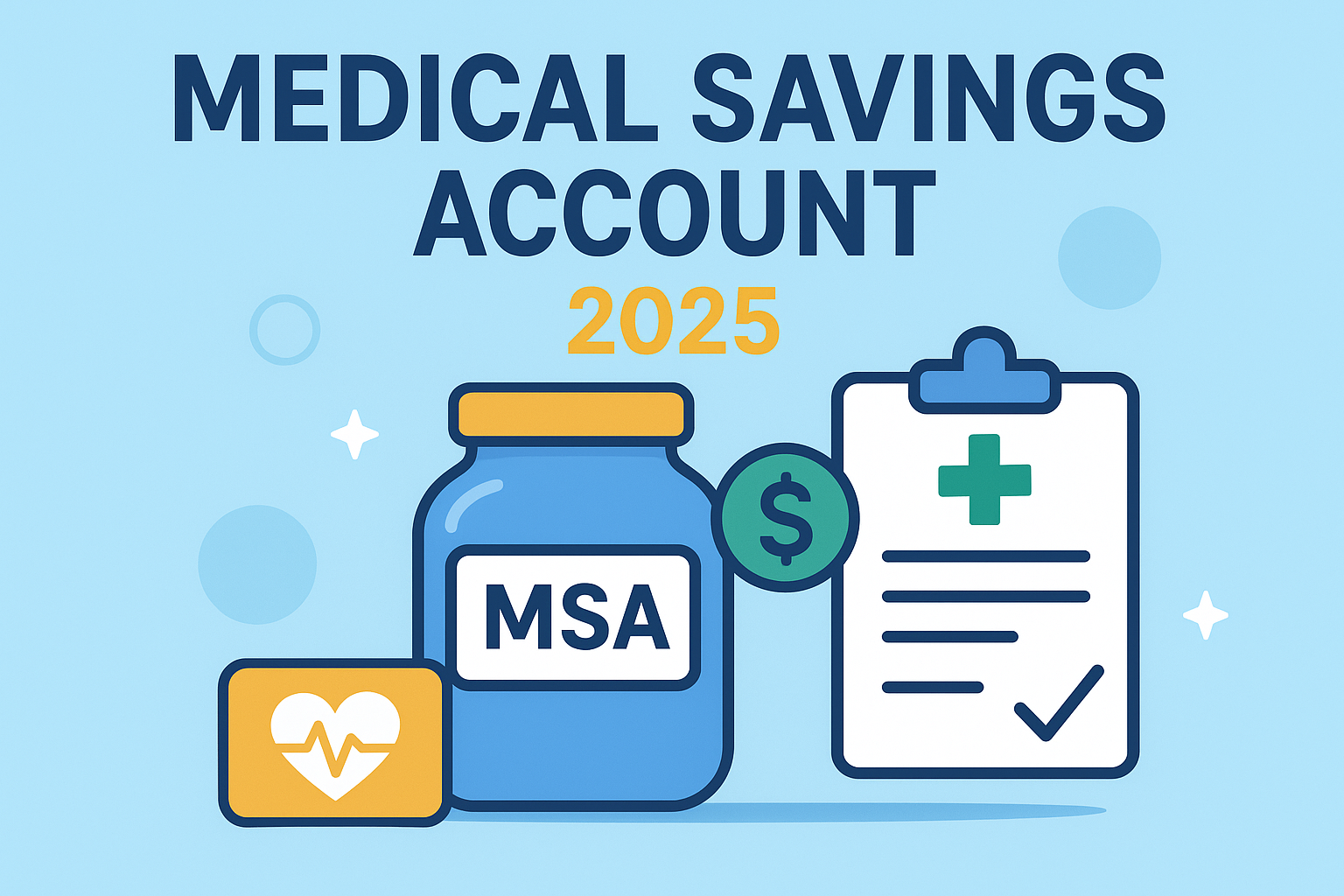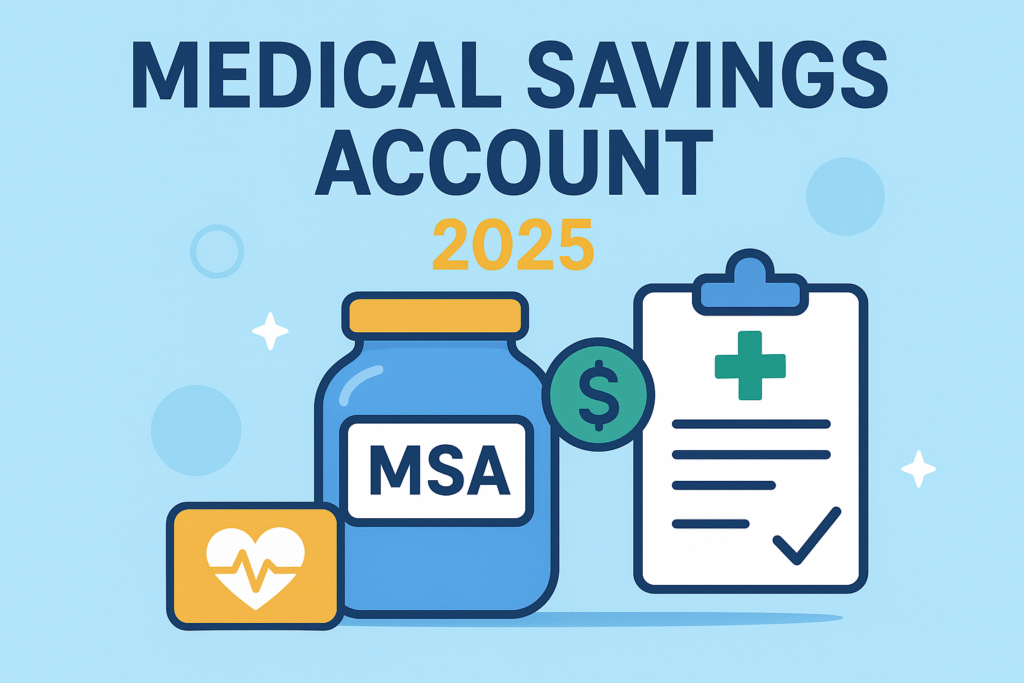
Introduction: Why Medical Savings Accounts Matter
Healthcare costs in the United States are rising every year, and families are constantly searching for ways to save money while managing medical expenses. One powerful but lesser-known option is the Medical Savings Account (MSA).
MSAs are designed to help individuals and self-employed workers pay for healthcare expenses while enjoying tax advantages. Although they’re less popular than Health Savings Accounts (HSAs), MSAs still provide unique benefits that make them worth exploring.
In this guide, we’ll break down everything you need to know about Medical Savings Accounts in 2025—from the basics to tax rules, benefits, and how they compare to HSAs.
What is a Medical Savings Account (MSA)?
A Medical Savings Account (MSA) is a tax-advantaged savings account created to help people with high-deductible health plans (HDHPs) pay for medical expenses.
Originally introduced in the 1990s, MSAs were mainly designed for self-employed individuals and small business employees. Over time, HSAs became more common, but MSAs still exist for those who qualify.
With an MSA:
- You contribute pre-tax dollars into the account.
- The money grows tax-free.
- Withdrawals for qualified medical expenses are also tax-free.
In simple terms: Save → Grow → Spend (for healthcare) without tax penalties.
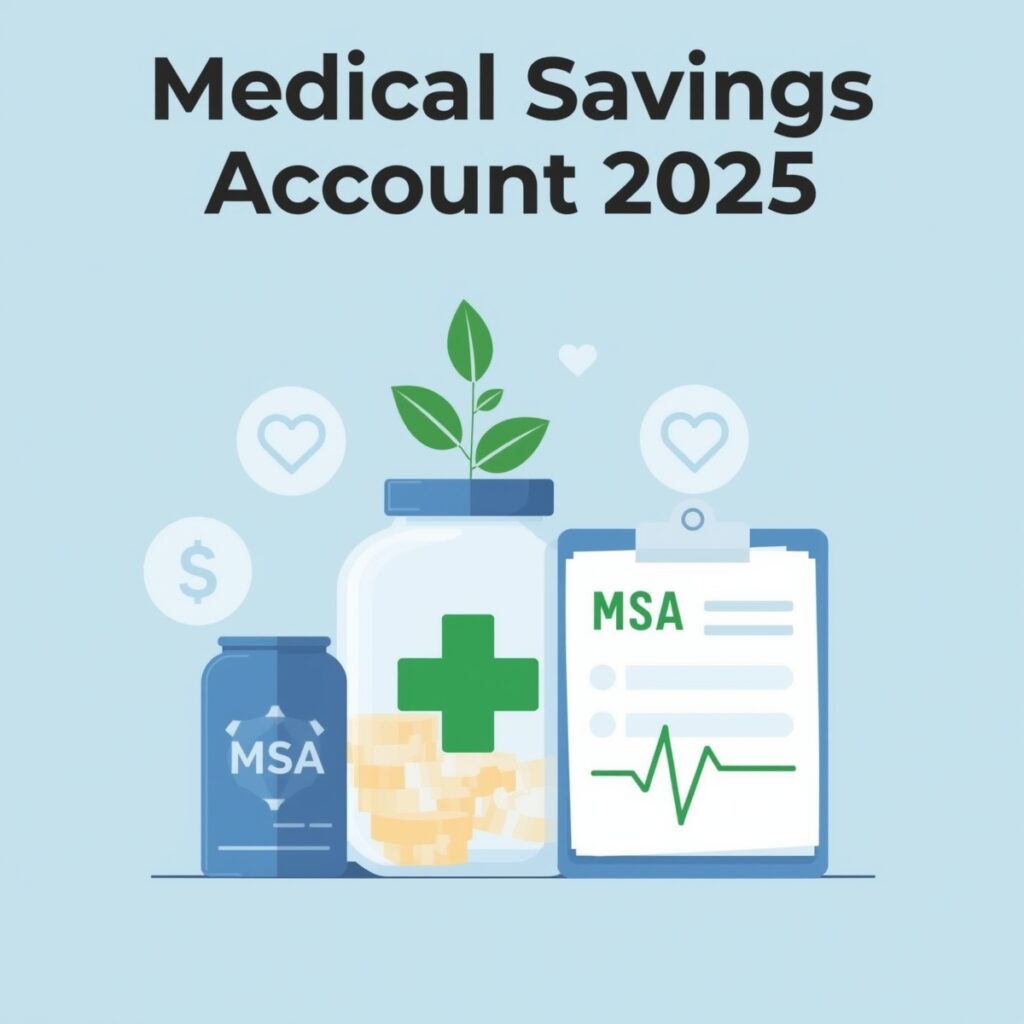
How Does a Medical Savings Account Work?
Here’s a step-by-step example of how an MSA works:
- Open an MSA if you are eligible (self-employed or small business employee with an HDHP).
- Contribute money into the account. These contributions are usually tax-deductible.
- Use funds for qualified medical expenses such as doctor visits, prescriptions, hospital bills, and even dental or vision care.
- Enjoy tax benefits: contributions reduce taxable income, earnings grow tax-free, and withdrawals for medical expenses are tax-free.
If you withdraw funds for non-medical purposes, you’ll have to pay regular income tax plus a penalty.
Benefits of a Medical Savings Account (MSA)
MSAs provide several advantages that can help you save money and prepare for future healthcare costs.
1. Tax Savings
- Contributions are tax-deductible.
- Funds grow tax-free.
- Qualified withdrawals are tax-free.
This “triple tax benefit” makes MSAs financially attractive.
2. Control Over Healthcare Spending
Unlike traditional insurance, an MSA gives you more control. You decide how to spend your healthcare dollars.
3. Flexibility
MSAs can cover a wide range of medical expenses, including prescriptions, dental work, vision care, and hospital stays.
4. Portability
Your MSA stays with you even if you change jobs, making it more flexible than some employer-based insurance benefits.
Who is Eligible for a Medical Savings Account?
Not everyone qualifies for an MSA. To be eligible, you must:
- Be self-employed, OR
- Work for a small business (50 or fewer employees)
- Have a high-deductible health plan (HDHP)
If you don’t meet these requirements, you may need to look at an HSA instead.

Contribution Limits for MSAs in 2025
Contribution limits vary depending on your health plan and whether you’re self-employed or employed by a small business.
- Self-employed individuals: You can contribute up to 75% of your annual deductible.
- Employees of small businesses: You can contribute up to 65% of your annual deductible.
Example: If your deductible is $4,000 and you’re self-employed, you can contribute up to $3,000 into your MSA.
Medical Savings Account vs Health Savings Account (MSA vs HSA)
Many people confuse MSAs with HSAs. Here’s a simple comparison:
| Feature | Medical Savings Account (MSA) | Health Savings Account (HSA) |
|---|---|---|
| Who Can Open | Self-employed or small business employees | Anyone with a high-deductible health plan |
| Contribution Limits | 65%–75% of deductible | Fixed IRS limits ($4,150 individual / $8,300 family in 2025) |
| Employer Contributions | Only employer or employee, not both | Both employer and employee can contribute |
| Availability | Limited, older system | Widely available and popular |
| Tax Benefits | Tax-deductible, tax-free growth, tax-free withdrawals | Same triple tax benefit |
Bottom Line: If you qualify for an HSA, it usually offers more flexibility. But if you’re self-employed or in a small business with an HDHP, an MSA could still be a good option.
Tax Benefits of a Medical Savings Account
One of the biggest reasons people choose MSAs is the tax advantage. Here’s how it works:
- Before-tax contributions lower your taxable income.
- No tax on growth — investments or interest earned in your MSA are tax-free.
- No tax on qualified withdrawals — as long as you use the money for medical expenses.
⚠️ Important Note: If you withdraw money for non-medical reasons before age 65, you’ll pay regular income tax plus a penalty.
Commonly Covered Expenses with an MSA
Here are some qualified medical expenses you can pay with your MSA:
- Doctor visits & hospital bills
- Prescription drugs
- Dental & vision care
- Mental health treatment
- Physical therapy
- Lab tests & medical equipment
Basically, most IRS-approved medical expenses are covered.
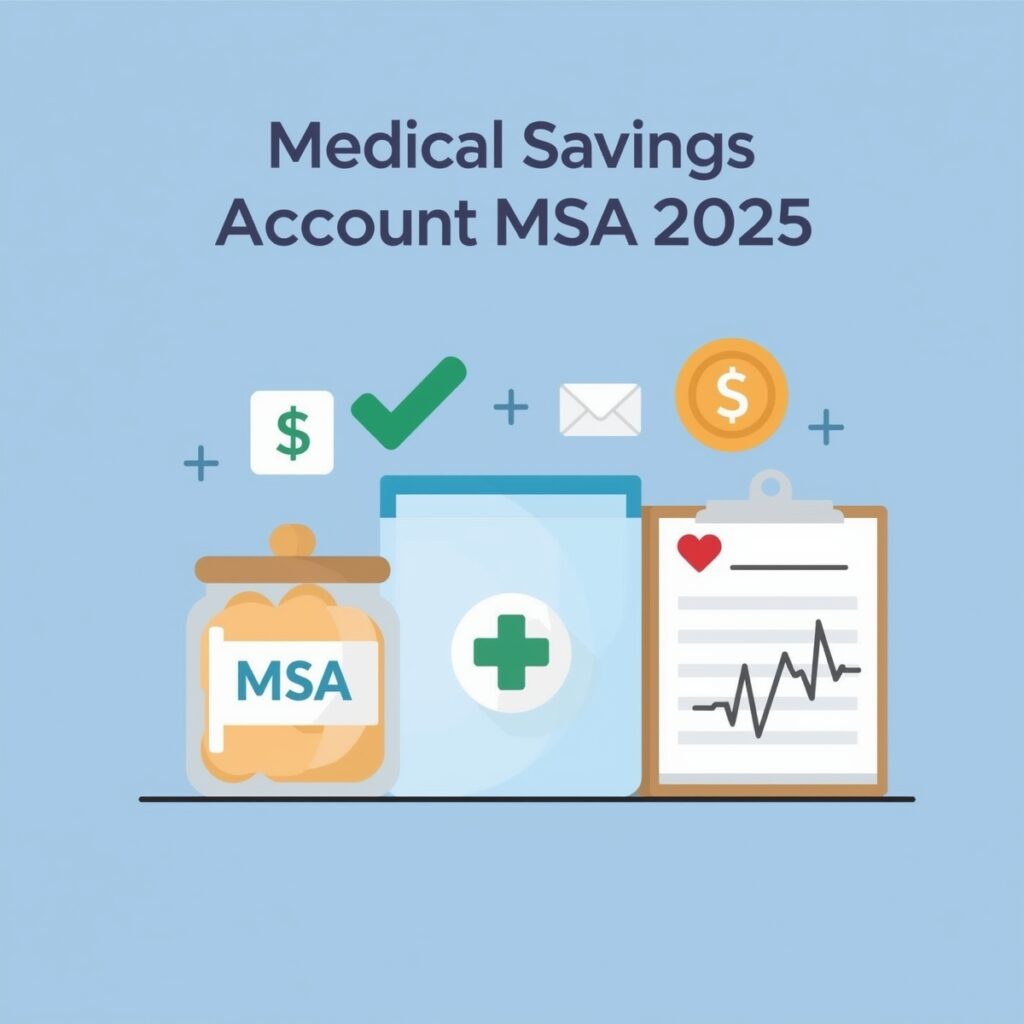
Is a Medical Savings Account Right for You?
An MSA could be the right choice if:
- You are self-employed or in a small business.
- You have a high-deductible health plan (HDHP).
- You want to save money on taxes while preparing for healthcare expenses.
However, if you don’t qualify, or if your employer offers an HSA, that may be the better option.
Frequently Asked Questions (FAQs)
1. Can anyone open a Medical Savings Account?
No, only self-employed individuals or small business employees with high-deductible health plans can open MSAs.
2. Are MSAs still available in 2025?
Yes, but they are less common compared to HSAs. HSAs are the preferred choice for most individuals today.
3. What happens if I use MSA funds for non-medical expenses?
You’ll pay regular income tax plus a penalty if you withdraw before age 65.
4. Do MSAs roll over each year?
Yes. Unlike flexible spending accounts (FSAs), unused funds roll over year after year.
5. Can I invest MSA funds like an HSA?
Some MSA providers allow limited investment options, but HSAs generally offer more investment flexibility.
Conclusion
A Medical Savings Account (MSA) is a powerful but less-known tool that can help self-employed individuals and small business employees save money on healthcare costs while enjoying tax advantages.
While HSAs are more popular and widely available, MSAs still provide valuable benefits for those who qualify. If you’re eligible, opening an MSA in 2025 could be a smart financial move to take control of your medical expenses and reduce your tax burden.
🔗 Recommended External Links
- IRS – Medical Savings Accounts (MSAs)
👉 https://www.irs.gov/publications/p969
(Official IRS guide on MSAs, HSAs, and tax rules.) - Healthcare.gov – High Deductible Health Plans
👉 https://www.healthcare.gov/glossary/high-deductible-health-plan/
(Explains HDHPs, which are required for both MSAs and HSAs.) - Investopedia – Medical Savings Account (MSA)
👉 https://www.investopedia.com/terms/m/medical-savings-account-msa.asp
(Easy-to-understand financial explanation with pros & cons.)
👉 If you’re also interested in learning how Health Savings Accounts (HSAs) work, check out our guide here: Can I Use My HSA for Dental Implants in America 2025?
